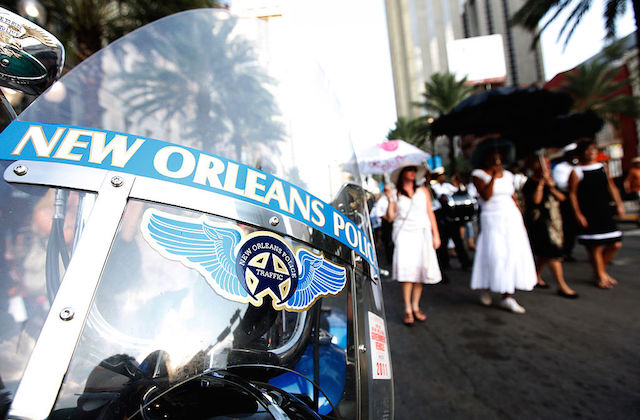In a time when police-involved shootings of civilians dominate the media, Louisiana legislators have passed a bill that would expand the state’s current hate crimes statute to include killing police officers, firefighters and emergency medical services personnel.
HB 953, also know as the Blue Lives Matter Bill, received affirmative votes in both the house and the senate, and on Thursday (May 19) it was sent to Louisiana Governor John Bel Edwards for his signature. CNN reports that Edwards will soon sign the bill into law. If that happens, Louisiana will become the first state to embrace this statute, which would be amended to read:
It shall be unlawful for any person to select the victim of the following offenses against person and property because of actual or perceived race, age, gender, religion, color, creed, disability, sexual orientation, national origin or ancestry of that person or the owner or occupant of that property or because of actual or perceived membership or service in, or employment with, an organization, or because of actual or perceived employment as a law enforcement officer, firefighter or emergency medical services personnel.
“In the news, you see a lot of people terrorizing and threatening police officers on social media just due to the fact that they are policemen. Now, this protects police and first-responders under the hate-crime law,” state representative Lance Harris—who introduced the bill in April—told CNN. “If you’re going to have an extensive hate crime statute then we need to protect those that are out there protecting us on a daily basis. There is a concerted effort in some areas to terrorize and attack police and I think this will go forward and stop that.”
Former police Lt. Randy Sutton—spokesperson for Blue Lives Matter, which was formed in response to the Black Lives Matter movement—told CNN that he supports the bill. “[It’s] important because symbolically it advises that there is a value to the lives of police officers. When you give value, it acts as a deterrent in one sense, but it also is a tool to add extra punishment for the assaults and the crimes against them,” Sutton said.
Critics disagree on the need for the law. Allison Padilla-Goodman, regional director for the Anti-Defamation League, issued a statement on the bill earlier this month, saying:
[Laws against] hate crimes are designed to protect people’s most precious identity categories—their “immutable characteristics” like race, religion, gender, sexual orientation, disability, ethnicity and gender identity. Proving the bias intent is very different for these categories as it is for the bias intent of a crime against a law enforcement officer—and adding professional categories to the current hate crimes statue deters efforts from protecting against identity-based crimes.
